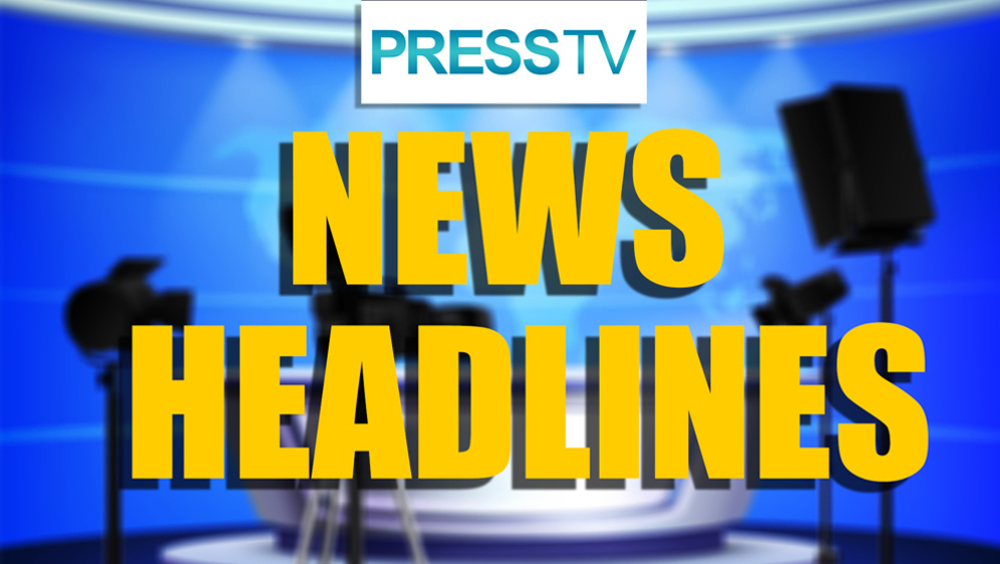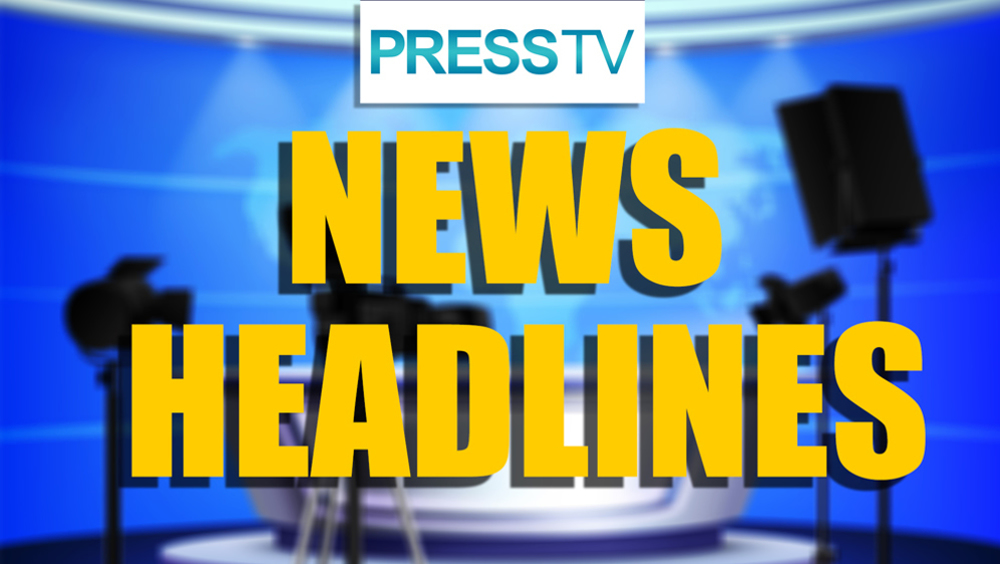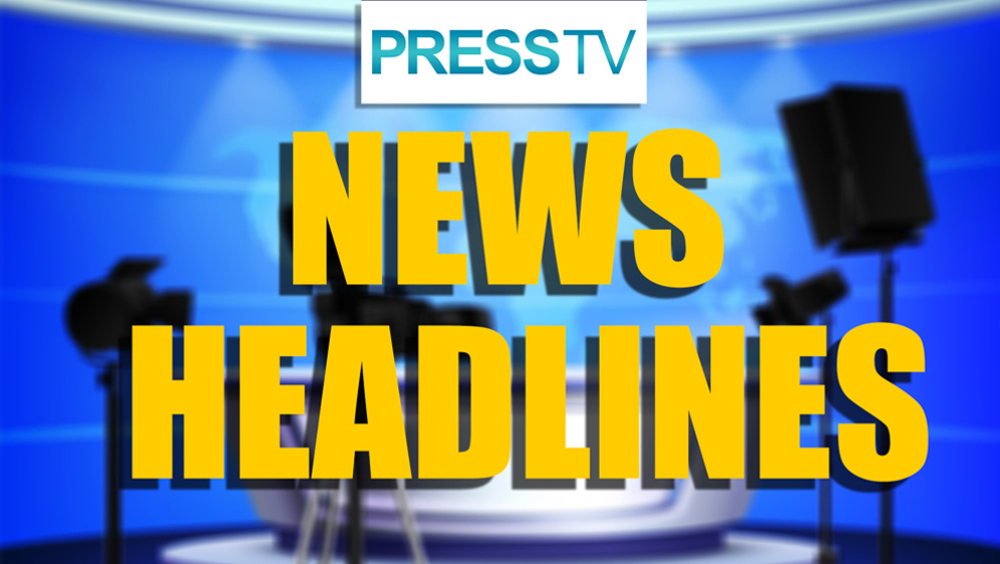WATCH PRESS TV NEWS HEADLINES
Here is a brief look at Press TV newsroom's headlines from 1800 GMT, March 15, 2019 to 0800 GMT, March 16, 2019.
Rouhani reacts to NZ attacks
Iranian President Hassan Rouhani has condemned the terrorist attacks against Muslim worshipers in New Zealand as atrocious and painful. In a statement, Rouhani said the attacks showed that terrorism is still a serious problem in the world. He called for a unified stance to fight Islamophobia, terrorism and hatred across the globe. The Iranian president also criticized Western media’s double standards when it comes to terrorist attacks against Muslims. Meanwhile, Iranian Foreign Minister Mohammad Javad Zarif called for an emergency meeting of the Organization of Islamic Cooperation to discuss the incident. Earlier, the Turkish president blamed the rise of Islamophobia in the West for the massacre.
New Zealand premier pledge
New Zealand has decided to reform its gun laws following the terror attacks that killed dozens of Muslim worshippers in the country. Ardern said the main suspect in the massacre had a small arsenal of semi-automatic weapons. The premier noted that the man had a gun license which allowed him to legally obtain the weapons. The 28-year-old suspect identified as Brenton Harrison Tarra appeared in court and was charged with murder. He was remanded without plea until his next appearance at High Court on April 5.
US says no to ICC probe
The United States says it will withdraw or deny visas to any International Criminal Court personnel investigating possible war crimes by US forces or allies in Afghanistan. Pompeo said that the visa restrictions would not be the end of Washington’s efforts. He threatened additional steps, including economic sanctions, against the ICC if the court does not change its course. But The Hague insisted that it was an independent institution and would continue its work undeterred by Washington's threats. In November 2017, the ICC prosecutor requested authorization to initiate a probe into alleged war crimes and crimes against humanity committed in Afghanistan since mid-2003.
Trump’s first veto
US President Donald Trump issues his first veto, blocking a congressional measure that would terminate his border emergency declaration. The House of Representatives will now vote on the issue on March 26 in an attempt to override Trump’s veto. The House however is not expected to garner enough support to do so. The bipartisan measure, which had passed both the House and the Senate, was to prevent Trump from obtaining funds for his border wall plans. Trump had initially called for a nearly six billion dollars to build the wall to stop immigrants from crossing into the country. Lawmakers opposing the move say the president is misusing funds allocated for other projects.
US Russia sanctions
The United States has imposed new sanctions against Russia in response to what it calls Moscow’s continued aggression in Ukraine. In a statement, US Treasury Secretary Steve Mnuchin announced the sanctions, which target six Russian officials, six defense firms and two energy and construction firms. The sanctions, which come in coordination with the European Union and Canada, freeze all property and interests in property belonging to the designated individuals and entities. The restrictions also ban American nationals from transacting with them. The US and its European allies have imposed several rounds of sanctions against Russia over the unification of the Crimean Peninsula. In a 2014 referendum, Crimeans voted in favor of reunification with Russia.
France Islamophobia
France's Islamophobia watchdog has released its annual report. The report indicates that anti-Muslim discrimination is on the rise in the country, following a much calmer 2017. Ramin Mazaheri has more from Paris.
Trump’s trade war cost
A study reveals that US President Donald Trump’s trade war cost the American economy 7.8 billion dollars over the past year. The study has been conducted by a team of economists at four American universities that analyzed the short-run impact of Trump’s tariff campaign. The researchers found that levies brought down imports from targeted countries by more than 31 percent. But overall, the experts say, those tariffs resulted in welfare loss which is equal to 0.04 percent of GDP. Trump has pursued a protectionist trade agenda to shield US manufacturing. He has imposed tariffs on products from the European Union, China and other countries to reduce the trade deficit. His actions have triggered retaliatory measures.
Iran Army ready to thwart terrorist threats, will crush enemy's delusion of grandeur: Cmdr.
Trump version 2
Gaza truce underscores that Hamas is irreplaceable and can't be knocked out
VIDEO | IRIB expands global reach with launch of Press TV Turkish, Hispan TV Brasil
Trump lifts sanctions on violent settlers as Israelis attack West Bank towns
VIDEO | Israeli snipers kill two Palestinian children in Gaza’s Rafah despite ceasefire
Gaza ceasefire deal must become sustainable solution: Iran’s UN envoy
VIDEO | Press TV's news headlines













 This makes it easy to access the Press TV website
This makes it easy to access the Press TV website